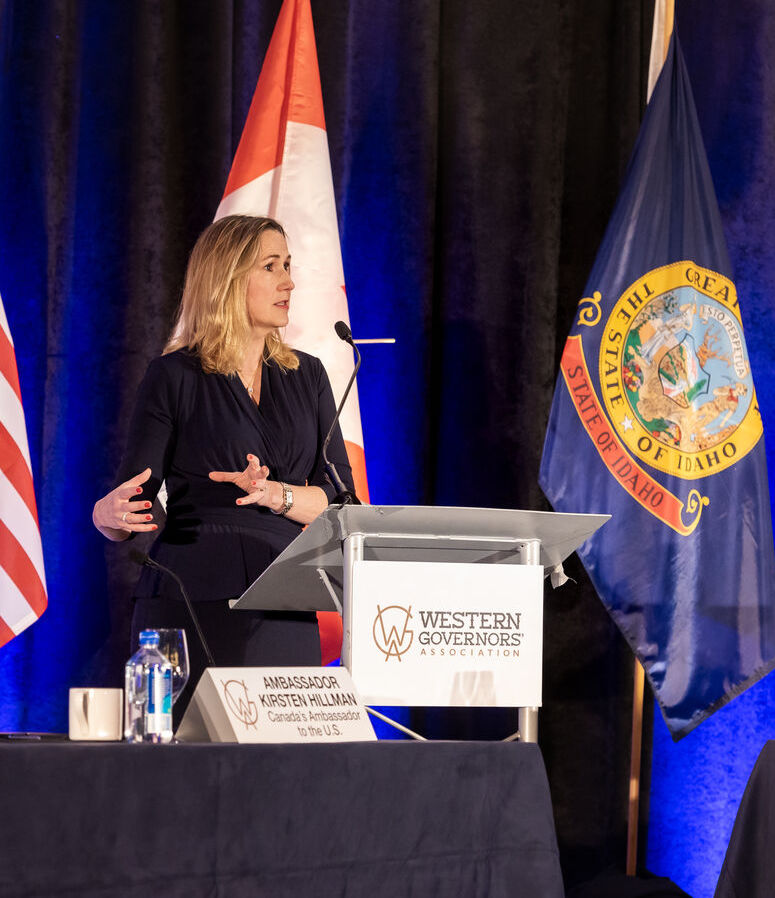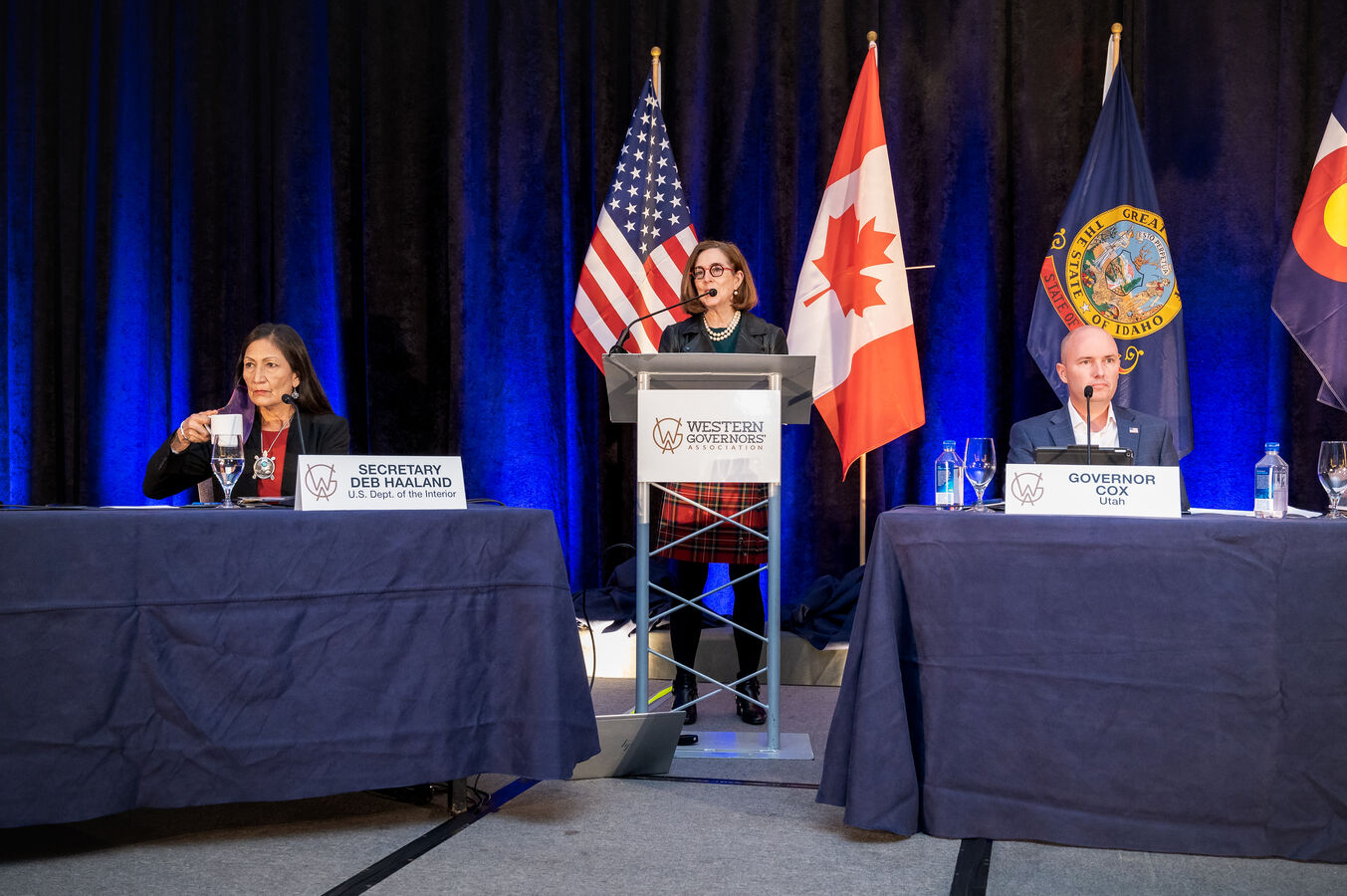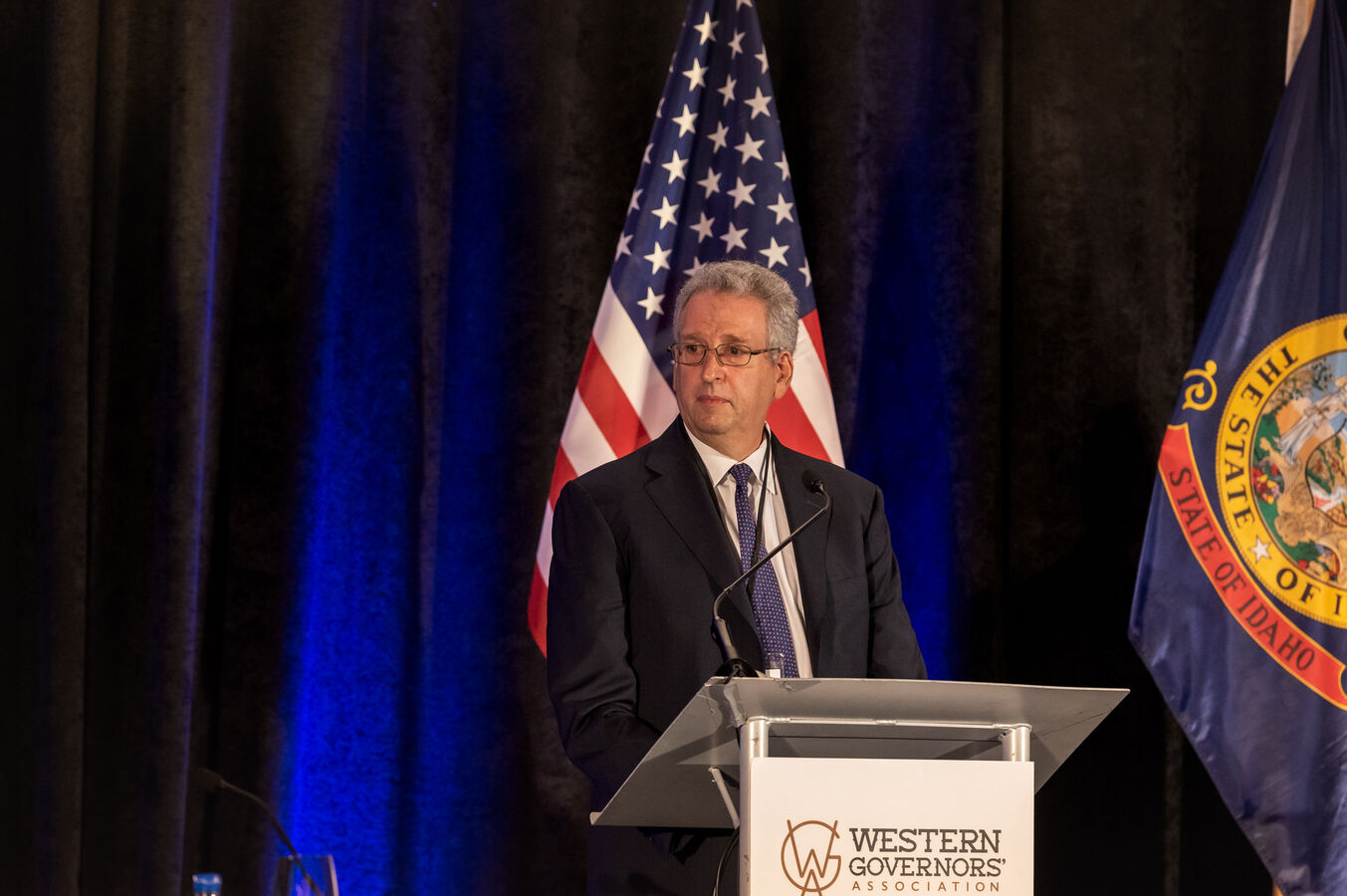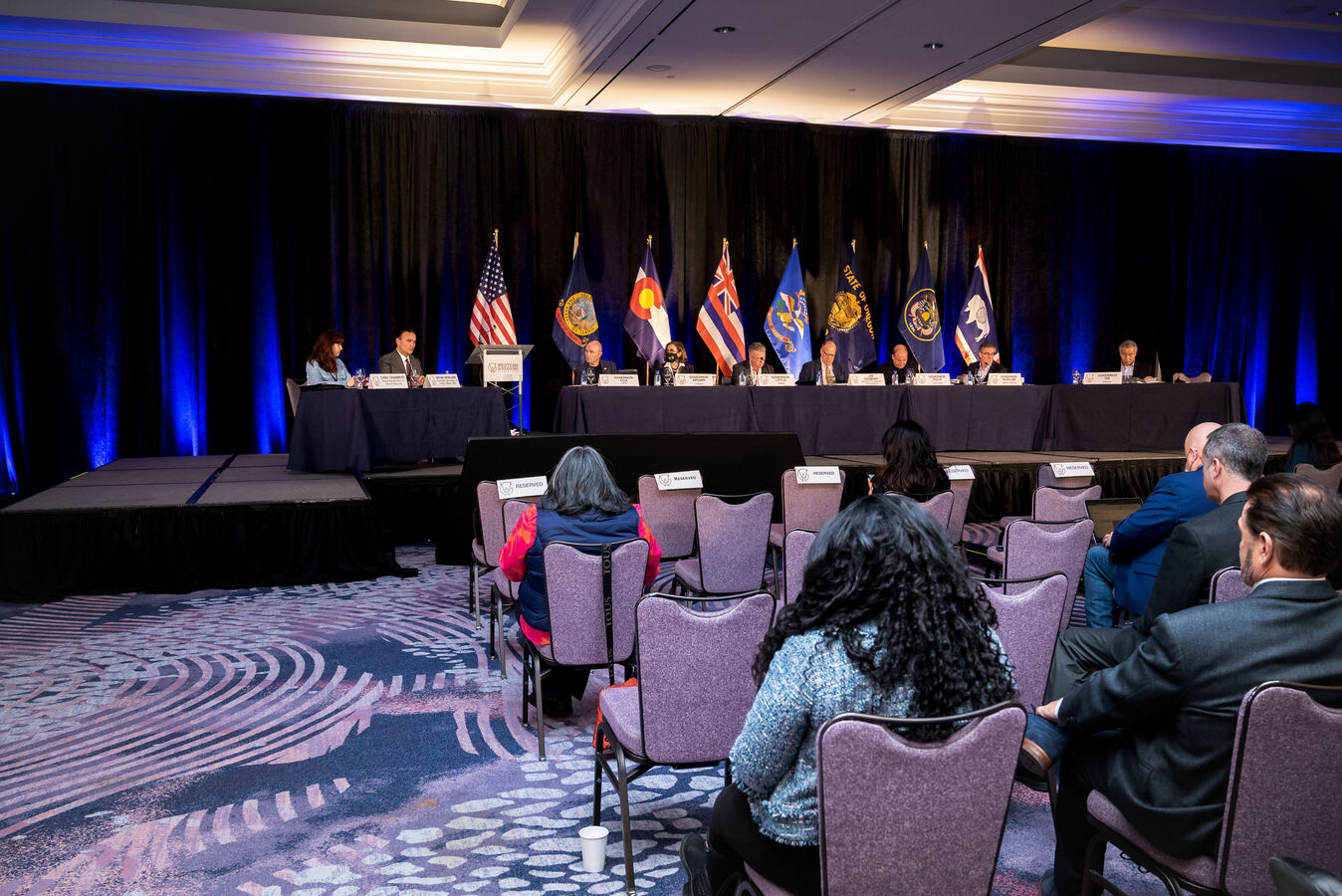12/09/21
Highlights from the 2021 WGA Winter Meeting

The first day of WGA's 2021 Winter Meeting, hosted by Idaho Gov. Brad Little, wrapped up on Dec. 9 after a day of penetrating conversations on the global computer chip supply shortage, environmental conservation, the future of aviation and the changing public perception of politicians.
The day’s event opened with tone-setting speeches from Gov. Little and the Canadian Ambassador to the U.S., Kirsten Hillman, that highlighted the importance of bipartisan collaboration when addressing the region’s most challenging issues. “Canada is the largest and most diverse energy supplier for the US,” she said. “Our systems, companies, and workers are integrated. The strength of those connections will help us face the energy challenges of today and tomorrow.”
Here’s a look back at highlights from the first day’s sessions and a look ahead at the agenda for Day Two.
Day One: Dec. 9
Welcome and Opening Remarks: WGA Executive Director Jim Ogsbury, Canadian Ambassador to the U.S. Kristen Hillman:
Jim Ogsbury: "At the point of the spear of COVID response, Governors have worked tirelessly to protect their people and economies. They have made life and death decisions. They have kept their heads high and maintained their optimism and humor."
 Ambassador Kristen Hillman: "Canada has 13 of the 30 minerals that are deemed critical for defense and other applications. We are looking to partner with our closest neighbor and ally on these products that are deeply important. These products are critical for electric vehicle batteries. We want to be strong partners with the US and your companies in getting these products to market."
Ambassador Kristen Hillman: "Canada has 13 of the 30 minerals that are deemed critical for defense and other applications. We are looking to partner with our closest neighbor and ally on these products that are deeply important. These products are critical for electric vehicle batteries. We want to be strong partners with the US and your companies in getting these products to market."
Roundtable I – Computer Chip Challenges in a High-Tech Economy: The global computer chip shortage has highlighted the critical role of chips in almost every aspect of manufacturing, from automobiles to smartphones to medical equipment. This panel discussed the current chip shortage and solutions to increase the supply of these important components. Panelists include: Sanjay Mehrotra, Chief Executive Officer, Micron Technology, and Todd Gustafson, President, HP Federal LLC and Head of U.S. Public Sector, HP Inc.
Sanjay Mehrotra: "As we continue to lead the world in innovation, despite manufacturing moving overseas, we need to support the engine of innovation in the years to come. We need to fund research in the US, not just manufacturing, for the future technologies of quantum computing and other breakthroughs we can’t even imagine yet today."
Todd Gustafson: "As a percentage of GDP, the US used to invest far more in this industry. Compared to other countries such as Japan, Norway, and China, we are falling behind instead of driving investment… Our country will reinsert its leadership by making technology investments at the base level."
Keynote I - Cyrus Sigari, Co-founder, and Executive Chairman at jetAVIVA; and Co-founder and Managing Partner at UP.Partners. An expert in advanced aerial mobility, Sigari will share his vision for a multi-dimensional future that includes drones, flying cars and other aviation advances.
Cyrus Sigari: “We’re coming up on the 60-year anniversary of the Jetsons. I’m here to tell you that it’s here… I’d encourage you (the Governors) to start putting together a team to assess how advanced air mobility can positively affect your state.”
Keynote II - Interior Secretary Deb Haaland: The Secretary of the Interior will discuss the importance of state-federal collaboration on land management priorities, especially in the western states where the Department manages such a high percentage of federal lands. Her speech will be followed by a Q&A with the Governors.
 Sec. Haaland: “The Department of the Interior and WGA have consistently worked together to address natural resource issues across the west… Nature has a critical role to play in improving our resilience to climate change and creating a thriving economy… Together we can make a lasting difference that our children and their children can be proud of.”
Sec. Haaland: “The Department of the Interior and WGA have consistently worked together to address natural resource issues across the west… Nature has a critical role to play in improving our resilience to climate change and creating a thriving economy… Together we can make a lasting difference that our children and their children can be proud of.”
Keynote III - Frank Luntz, Communications Professional
Frank Luntz: "If we want to end the ugliness in this country, communication is key."
Day Two: Dec. 10
9:15 - 10:00 a.m.: Keynote IV - The Honorable Deanne Criswell, Administrator of the Federal Emergency Management Agency
Administrator Criswell will discuss the challenges facing our nation and states in terms of planning for and responding to disasters such as wildfires and hurricanes, as well as public health emergencies like the COVID-19 pandemic. Her speech will be followed by a Q&A with the Governors.
Admin. Criswell: "It is our responsibility to empower local communities to implement these mitigation actions, practice preparedness year-round, and work together to implement climate mitigation plans that are equitable for all communities."
 10:00 - 10:45 a.m.: Keynote V - The Honorable Richard Glick, Chairman of the Federal Energy Regulatory Commission
10:00 - 10:45 a.m.: Keynote V - The Honorable Richard Glick, Chairman of the Federal Energy Regulatory Commission
Chairman Glick will discuss the challenges our nation's energy infrastructure faces and opportunities for states and the federal government to collaborate on protecting and enhancing the energy grid. His speech will be followed by a Q&A with the Governors.
Chairman Glick: "One of the challenges of this new energy transformation is that we now have a grid that's much more reliant on the weather. We need more flexible generation resources that can compensate for this dynamic."
10:45 - 11:30 a.m.: Roundtable II - Murdered and Missing Indigenous Persons Update
Native people across the United States and Canada, especially women and girls, are murdered, go missing, and experience violence at significantly higher rates than other populations. This panel will highlight the progress that has been made to address this crisis, the challenges that remain, and innovative strategies and partnerships to ensure the safety of our Indigenous communities. Panelists include: Bryan Newland, Assistant Secretary of Indian Affairs, U.S. Department of the Interior and Cara Chambers, Chair, Wyoming Missing and Murdered Indigenous Persons Task Force.
Assistant Sec. Newland: "When policy makers are able to pour energy into solutions rather than fighting over spheres of jurisdiction, good things happen. That’s what needs to happen here to solve this crisis of missing and murdered indigenous people and domestic violence across Indian country."
Chair Chambers: "In state government we think we have all the answers, but we don’t, and listening to the right people is key."
